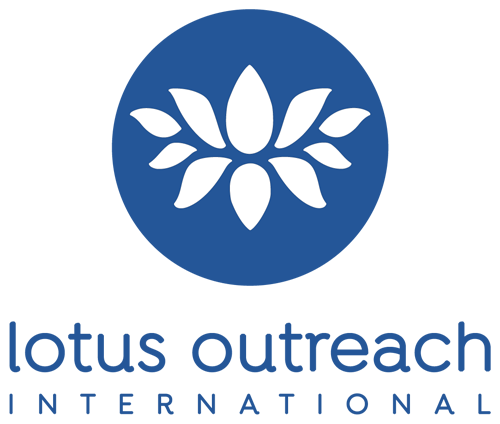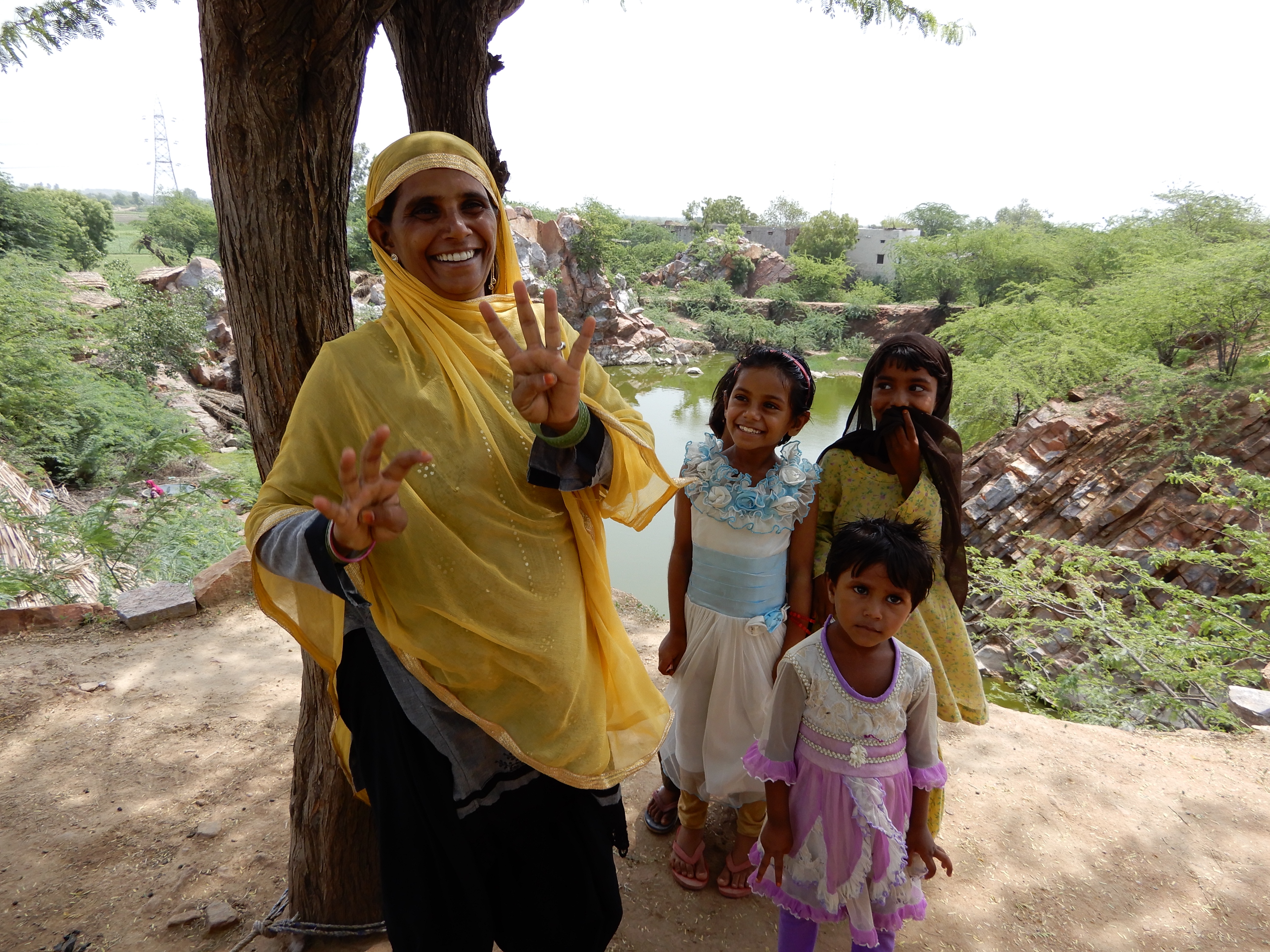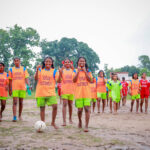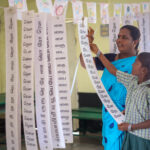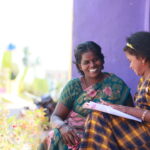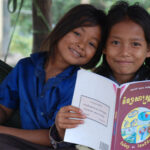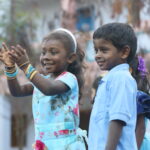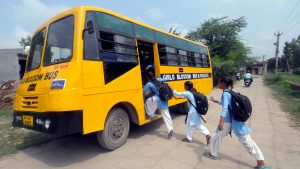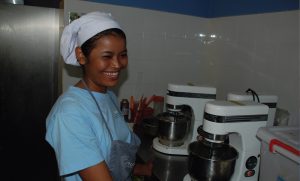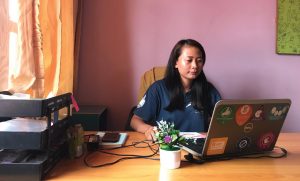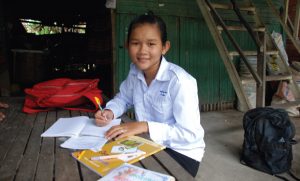LotusRelief In India
ASHA
““ASHA” also means hope in Hindi,” said Program Manager, Suraj Kumar. Since Lotus Outreach International and Lotus Outreach Germany initiated this program in rural Rajasthan, India in 2017 we’ve referenced, “Accredited Social Health Activist,” the technical meaning of the acronym. In the context of the Indian public health system, ASHA are health worker activists that were instituted in 2005 by the National Rural Health Mission to create more utilization and accountability of existing health services. It is in this spirit of activism and hope that Lotus Outreach began work on our ASHA program with our local partner, White Lotus Charitable Trust, to build the capacity and accountability of local health workers and mobilize rural villagers around their health and health rights.
For every 200-300 families in India there exists an Anganwadi center “courtyard shelter”. The Anganwadi system was established in 1975 as part of the Integrated Child Development Services program to combat child hunger and malnutrition. Anganwadi, in collaboration with ASHA and other helpers at their centers, are the first line of health defense for communities in India.
Our goal with ASHA, Suraj says, has always been to build the competence of local health workers in rural (and very poor Mewat) so that they can serve and educate their communities. In effect this can mobilize communities around health and teach them to advocate for their health rights. In India, he says, there is so much corruption in government that to hold the structures in place accountable to these communities requires an aware populace that understands its rights. We are advocating for communities, health workers, and the government to hold one another accountable.
The fourteen years that Suraj has been a Program Manager for Lotus Outreach (specifically for our WLCT partner in India) stand-out to him because of the freedom he’s had to experiment and innovate in conversation with community members and their needs. Having worked with three other NGOs in India he doesn’t believe this kind of collaboration is generally possible.
After less than six months in the field it was clear that as suspected there were devastating gaps in health services in the Mewat. Local Anganwadi, ASHA, and health helpers had not been sufficiently trained and zero accountability existed from the side of government offices that were meant to have educated these health workers in their duties. Many health workers were also not reliable or responsible.
In the three years since ASHA was started we have quickly grown from working with building the capacity of 7 Angandwadi health workers in five villages to to 311 in 150 villages. As each Anganwadi works together with a team of ASHA and helpers we have collaborated with the government to ensure the training of more or less 1,000 local health workers. “We give them training on these issues so that they can go again and train their communities.We’re not doing it for their personal knowledge he emphasizes. We want to make them capable, to make this knowledge available to the community”.
In addition to working with health workers we also engage directly with community members. We hold community meetings to educate villagers about the health services they should be receiving so that they can advocate for the quality of services due to them (since health workers can be a part of the problem). During meetings villagers have a chance to speak out and articulate their needs and rights.
Our work takes the approach of strengthening existing structures instead of trying to start something new. We are working in collaboration with social programs established by the government. It was the government, he says, that agreed to invite us to collaborate on the training of these local health workers.
Our ASHA program nurtures the hope and belief that with advocacy and accountability local health workers gain competence while at the same time government structures transform to deliver the services promised to communities. Our work in the education sector of Haryana was widely recognized (including by Harvard University) for this advocacy based approach.
In essence Suraj says when people know someone is watching, they will perform. Working with the government allows us to scale our work quickly because in India the infrastructure does exist and was established for this very purpose of mobilizing community health. We take a no blame approach and that is key. The government knows we’re there to help and so too do health workers and local community members.
To build this trust we always employ program coordinators who are from the communities themselves. They will be able to really understand the needs of the people and communicate freely with them. We advocate for societal well being on all levels and through good and collaborative relationships, we can accomplish a lot. Our ASHA program coordinator, Sekhawat, is from Mewat and has been working with WLCT since 2016. From 2017-2018 we also had a female coordinator, Pooja, who was a trained health worker herself and assisted our communication with adolescent girls and women in the villages greatly.
Since we’ve been working with these Anganwadi they have become active and engaged, responsible and committed community members. They are learning to be a health resource for all villagers according to their duty. The commitment of our advocacy for them and for their communities has instilled in them a fire to participate and advocate for themselves and villagers with local government. The people are like this in Mewat Suraj says, “they do stand up for themselves”.
The responsibilities of local Anganwadi are summarized below:
- Monitor the growth and health of children, identifying malnourishment
- Look after pre and post natal mothers, educates them on what to eat/ nutrition, supports them in reaching health services for monthly check-up and supplying supplements
- Supports community and organizes all health related activities
- 40 children come to every Anganwadi daily for nutrition
- Community vaccinations monthly
- Visit and look out for every household
- Maintain records of all families
- Educate communities on hygiene-health, nutrition, best health practices and also rights.
- Teach villagers about how to prepare nutritional food
- Organize events such as “Hand-wash Day”, “Nutrition Day”, and community meetings
- Provides government nutrition and health supplements to villagers
- Manages local health center and team with ASHA and helper/s
- Daily ongoing communication with community in response to their needs
Anganwadi should be a source of accurate health and nutrition information, Suraj says, so that the community can take its health into its own hands. Once villagers are aware that the government has promised them health services, nutritional supplements, vaccinations and more, they will stand up for themselves. We have also been working with them to establish best hygiene practices, including the simple but powerful tool of hand washing.
ASHA and COVID19
Glenn Fawcett, Executive Director of Lotus Outreach, Suraj and I were delighted to include in this LotusRelief India piece that in fact for three years ASHA has been instilling the habit of hand washing in children and their families within the communities we work, as well as providing soap to these communities.
In addition to educating them about their health rights, we’ve taught them about hygiene practices. We’ve taught them to do the very simple thing of washing their hands to prevent 80% of diseases. While sometimes we give them to mothers during community meetings, Suraj says doing school “Hand-Wash Days” is most effective.
“There are 300-400 children in a school. Then they are ambassadors in the family and we give them the soap and they go to the family and make it a habit for everyone in the family. So that is how this message is going to every family because almost every family had a child going to school. “ We do school hand wash days in at least two schools every month, giving away at least 500-600 soap bars monthly.
When the present lockdown started in India Anganwadi reached out to us (they are always in touch with their needs) telling us they needed masks for their health centers especially because they would be delivering nutrition to every household while community members are not allowed to gather. WLCT quickly arranged and organized government permissions for ASHA coordinator, Sekskwat, who lives in Mewat, to deliver masks and soap to community health workers.
In this area families are farmers and are self-sufficient in terms of food. They rarely need to purchase anything from the market and during the lockdown the government relied on them so their work was not shut down. Anganwadi had been concerned to go door to door during the pandemic, so they are relieved and grateful to be receiving masks and soap to distribute to community members.
Sekskwat is already distributing masks and soap to Anganwadi. With the funds raised for LotusRelief India we will distribute 5,000 masks and 30,000 bars of soap to approx. 30,000 families in 150 villages. We expect he’ll be delivering them daily for the next two months. There were local restrictions on movement which meant he could reach only a few villages a week to begin but we anticipate he will very soon be delivering soap and masks to 5+ villages a day.
Suraj grew up in a neighboring region to Mewat and says there are two things essential to the kind of community work we are doing: a) to give the people what they really need and are asking for and b) any kind of aid should strengthen their capacity and will to help themselves and their society. It is our belief at Lotus Outreach International that change spreads fastest from the ground up.
